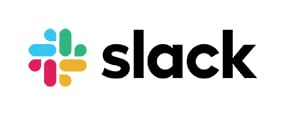
Organisations realised that to function effectively, they needed to introduce new software to overcome the challenge. Business messaging applications such as Slack stepped in to bridge the gap, and companies thus found new ways to collaborate both internally and externally.
There are, however, both good and bad ways to deploy any sort of collaboration software. Slack recently announced their Spotlight Awards to highlight where organisations have made a huge positive difference to their operations and, in some cases, the bottom line. This blog highlights some of the massive changes that these organisations have achieved.
The digital HQ
If an organisation cannot access its physical HQ, it must find a way to transform the operation into a digital one. That T-Mobile managed to do this amid a major acquisition was remarkable. It transformed not just one organisation, but two, in a very short time. It achieved that by leveraging the Slack messaging app.
When the pandemic hit, it was amid the integration with Sprint. An existing Slack customer, it rolled out Slack to the Sprint employees in a single day. Slack also helped to enable the shift to remote working, transitioning 12,000 call centre workers in less than two weeks. It achieved this by using Slack channels for processes including the physical interactions of kerbside pick up of equipment to the rapid dissemination of information around store openings, product updates and compensation. It replaced manual processes and created completely new ones enabled by Slack. In recognition of this work, T-Mobile won a new Slack Spotlight Award, the HQ award.
Slack has also leveraged its own software to create a digital HQ. Stuart Templeton, Head of UK at Slack, explains: “By creating a digital HQ and using open channels, you can connect to an organisation in ways that we just haven’t seen possible before. It really drives alignment, speed and agility, because everybody is in one space. Everything is structured and the right information is at people’s fingertips. This is why we call it a digital HQ.”
The digital project
Many of the award winners have completed digital transformation programmes during remote work with the assistance of Slack. For example, HMRC managed to roll out several digital services in an unprecedented timescale.
Slack helped enable 2,000 people across 60 teams to collaborate on services for more than 12 million businesses in the UK. It completed the work in under five weeks. Previous HMRC projects would have taken far longer.
The HMRC took advantage of integrations with the likes of Pager Duty and JIRA, further accelerating the project as users were working with a single interface without losing time. In leveraging Slack channels, stakeholders could rapidly keep abreast of the relevant elements of their project without having to create and consume volumes of information.
The end of email?
For many CIOs, email creates nightmares in terms of securing, backing up and the amount of time it wastes across organisations. According to Matt Plummer writing in HBR, an analysis by McKinsey indicates that the average professional spends 28% of the day reading and answering their emails.
While T-Mobile reduced email, Gymshark, the UK Spotlight winner, has shifted communications out of siloed inboxes and into channels, making it easier for teams to find the information that they need to get things done. Rather than having to waste time searching through emails for the latest files, the most up-to-date information is at hand. Because the company has integrated the apps that its people use every day into Slack, teams spend less time toggling between tabs and more time staying productive.
Every Gymshark worker is on Slack, and it’s where 95% of all their communications happen. Internal email is simply no longer required. Instead, employees connect in a variety of departmental and group channels, and they use direct messaging when they need to have a one-on-one conversation.
Will Slack completely eliminate email? Unlikely. Even within Gymshark, people will need to communicate externally with organisations and people that do not use Slack. However, research finds that a large proportion of workers (35%) would now rather go without email than their favourite collaboration tools. The reduction of emails also makes IT administration easier. It also means less internal spam as the channels tend to be self-regulating as people retain focus on the channels’ purpose.
Education re-imagined
The lockdown also impacted education establishments across the globe. One technology pioneer and winner of the Slack Education award that embraced change was the Arizona State University, ASU. Already ranked the most innovative university for the last five years, it leverages Slack to deliver a modern educational experience.
ASU rolled out Slack to more than 200,000 academics, administration staff and students. Not only does it provide a better medium to support the institution itself, but academics also use it to facilitate the creation of courses between themselves.
Interaction with students is now more efficient. Phil Simon, a lecturer at ASU’s WP Carey School of Business, noted, “I’m a professor who enjoys communicating and collaborating with my students. At the same time, though, I won’t spend my morning reviewing 150 emails, just answering the same query 18 different times.” Today he sets up a single Slack channel for a course answering queries in a single post. It also means that other students can see the information creating an equitable environment.
It has even changed student life. Students from the School of Journalism and Mass Communication coordinate their coverage across multiple channels as the story breaks. It replicates or perhaps even enhances what commercial operations do today.
Why winning awards is important
The obvious beneficiary of vendor awards is the publicity that the vendor gains from sharing these stories. However, they are not the only beneficiaries. Awards help highlight the changes that organisations have achieved, often in a limited time and usually with a clear focus. Internal success can also help the project sponsors obtain budgets for their next initiatives.
Company culture also receives a boost as employees are often proud that their company has won a prestigious award. Externally, the individuals and teams involved gain a greater reputation, which can help with their prospects.
Finally, other organisations can learn what is possible to achieve with these new technology tools. Messaging apps for business, including Slack, are also constantly evolving and improving. Artificial Intelligence is beginning to open up new opportunities. Organisations are already thinking about initiatives to apply the combination to benefit their businesses.
This year the Slack Spotlight Awards focused on digital transformation. What will next year bring?


























